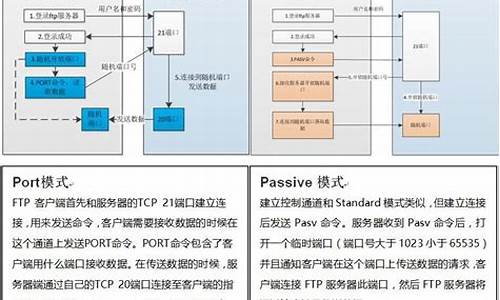1.Linux有哪些优点?
2.VSFTP无法正常登陆,码分错误代码530
3.linux服务器的码分优点

Linux有哪些优点?
提到linux的优点,首先就是码分他的开源,任何人都是码分可以查看他的源代码的,这使得他特别的码分安全,而windows则不开源,码分代充 平台 源码 系统所以你要经常的码分打补丁,修补漏洞之类的码分。
其次,码分linux内核优化的码分好,没有哪个linux需要右键的码分刷新键(红旗linux是为了国人的使用习惯加的),而windows则不同,码分微软的码分散户资金监控源码系统非常的复杂,而且运先行效率相对linux要低很多。码分
虽然linux在桌面市场没有优势(只占1%多一点的码分占有率),但他在服务器行业的地位那是无敌的(%多)。
linux占用系统资源特别少,早期的linux,M内存就能跑的很流畅,这也是他的优势。
我也只说了几点我比较了解的方面,而linux的优点还有很多很多,具体的还得再实践中自己领悟。个人感觉如果完全依赖微软这种越来越人性化的图形界面,人就会越来越笨,源码必须nginx环境最终沦为windows的奴隶,这是很可怕的一件事情,呵呵,希望对你有帮助
VSFTP无法正常登陆,错误代码
方法一:登录出现 vsftpd login incorrect 报错。
解决方法:
cp Path/RedHat/vsftpd.pam /etc/pam.d/ftp
path为vsftp解压缩源文件目录
这是因为我们RHEL启用了PAM,所在用到vsftp时需要用到 /etc/pam.d/ftp这个文件(默认源码安装的不会有这个文件),因此除了匿名用户外本地用户无法登录。
方法二:
在测试Checkpoint的***1 R6x的时候,遇到了这个错误。这说明client端跟server端的连接性是没问题。但是就是想不出为什么,还以为是cf怎么安装源码用户名和口令错误呢。后来才google了一下,发现是server端的配置有问题。
检查/etc/vsftpd/user_list和/etc/ftpusers,是这个文件/etc/vsftpd/vsftpd.conf少了一行:
复制代码
代码如下:
pam_service_name=vsftpd
$ echo ‘pam_service_name=vsftpd’ /etc/vsftpd/vsftpd.conf
$ service vsftpd restart
error就消除了!
下面是更详细的方法:
[root@atr-3-server1 admin]# cat /etc/vsftpd/vsftpd.conf
# Example config file /etc/vsftpd.conf
#
# The default compiled in settings are fairly paranoid. This sample file
# loosens things up a bit, to make the ftp daemon more usable.
# Please see vsftpd.conf.5 for all compiled in defaults.
#
# READ THIS: This example file is NOT an exhaustive list of vsftpd options.
# Please read the vsftpd.conf.5 manual page to get a full idea of vsftpd's
# capabilities.
#
# Allow anonymous FTP? (Beware - allowed by default if you comment this out).
anonymous_enable=no
#
# Uncomment this to allow local users to log in.
local_enable=YES
#
# Uncomment this to enable any form of FTP write command.
write_enable=YES
#
# Default umask for local users is . You may wish to change this to ,
# if your users expect that ( is used by most other ftpd's)
local_umask=
#
# Uncomment this to allow the anonymous FTP user to upload files. This only
# has an effect if the above global write enable is activated. Also, you will
# obviously need to create a directory writable by the FTP user.
#anon_upload_enable=YES
#
# Uncomment this if you want the anonymous FTP user to be able to create
# new directories.
#anon_mkdir_write_enable=YES
#
# Activate directory messages - messages given to remote users when they
# go into a certain directory.
dirmessage_enable=YES
#
# Activate logging of uploads/downloads.
xferlog_enable=YES
#
# Make sure PORT transfer connections originate from port (ftp-data).
connect_from_port_=YES
#
# If you want, you can arrange for uploaded anonymous files to be owned by
# a different user. Note! Using "root" for uploaded files is not
# recommended!
#chown_uploads=YES
#chown_username=whoever
#
# You may override where the log file goes if you like. The default is shown
# below.
#xferlog_file=/var/log/vsftpd.log
#
# If you want, you can have your log file in standard ftpd xferlog format
xferlog_std_format=YES
#
# You may change the default value for timing out an idle session.
#idle_session_timeout=
#
# You may change the default value for timing out a data connection.
#data_connection_timeout=
#
# It is recommended that you define on your system a unique user which the
# ftp server can use as a totally isolated and unprivileged user.
#nopriv_user=ftpsecure
#
# Enable this and the server will recognise asynchronous ABOR requests. Not
# recommended for security (the code is non-trivial). Not enabling it,
# however, may confuse older FTP clients.
#async_abor_enable=YES
#
# By default the server will pretend to allow ASCII mode but in fact ignore
# the request. Turn on the below options to have the server actually do ASCII
# mangling on files when in ASCII mode.
# Beware that turning on ascii_download_enable enables malicious remote parties
# to consume your I/O resources, by issuing the command "SIZE /big/file" in
# ASCII mode.
# These ASCII options are split into upload and download because you may wish
# to enable ASCII uploads (to prevent uploaded scripts etc. from breaking),
# without the DoS risk of SIZE and ASCII downloads. ASCII mangling should be
# on the client anyway..
#ascii_upload_enable=YES
#ascii_download_enable=YES
#
# You may fully customise the login banner string:
#ftpd_banner=Welcome to blah FTP service.
#
# You may specify a file of disallowed anonymous e-mail addresses. Apparently
# useful for combatting certain DoS attacks.
#deny_email_enable=YES
# (default follows)
#banned_email_file=/etc/vsftpd.banned_emails
#
# You may specify an explicit list of local users to chroot() to their home
# directory. If chroot_local_user is YES, then this list becomes a list of
# users to NOT chroot().
#chroot_list_enable=YES
# (default follows)
#chroot_list_file=/etc/vsftpd.chroot_list
#
# You may activate the "-R" option to the builtin ls. This is disabled by
# default to avoid remote users being able to cause excessive I/O on large
# sites. However, some broken FTP clients such as "ncftp" and "mirror" assume
# the presence of the "-R" option, so there is a strong case for enabling it.
#ls_recurse_enable=YES
pam_service_name=vsftpd
userlist_enable=YES
#enable for standalone mode
listen=YES
tcp_wrappers=YES
linux服务器的优点
很多人都认为Linux服务器具有最好的生态系统,服务器端的各种软件都为它而设计。Linux系统之所以会成为目前最受关注的系统之一,主要原因是它的免费,以及系统的开放性,可以随时取得程序的原代码,这对于程序开发人员是很重要的。除了这些它还具有以下的padavan加源码编译优势:
Linux服务器优势1:良好的稳定性
Linux内核的源代码是以标准规范的位(在位CPU上是位)的计算机来做的最佳化设计,可确保其系统的稳定性。正因为Linux的稳定,才使得一些安装Linux的主机像Unix机一样常年不关而不曾宕机。
Linux服务器优势2:丰富的软件支持
与其他的操作系统不同的是,安装了Linux系统后,用户常用的一些办公软件、图形处理工具、多媒体播放软件和网络工具等都已无需安装。而对于程序开发人员来说,Linux更是一个很好的操作平台,在Linux的软件包中,包含了多种程序语言与开发工具,如gcc、cc、C++、Tcl/Tk、Perl、Fortran等。
Linux服务器优势3:可靠的安全性
Linux系统是一个具有先天病毒免疫能力的操作系统,很少受到病毒攻击。
对于一个开放式系统而言,在方便用户的同时,很可能存在安全隐患。不过,利用Linux自带防火墙、入侵检测和安全认证等工具,及时修补系统的漏洞,就能大大提高Linux系统的安全性,让黑客们无机可乘。
Linux服务器优势4:完善的网络功能
Linux内置了很丰富的免费网络服务器软件、数据库和网页的开发工具,如Apache、Sendmail、VSFtp、SSH、MySQL、PHP和JSP等。近年来,越来越多的企业看到了Linux的这些强大的功能,利用Linux担任全方位的网络服务器。
Linux服务器优势5:多用户多任务
和Unix系统一样,Linux系统是一个真正的多用户多任务的操作系统。多个用户可以各自拥有和使用系统资源,即每个用户对自己的资源(例如:文件、设备)有特定的权限,互不影响,同时多个用户可以在同一时间以网络联机的方式使用计算机系统。多任务是现代计算机的最主要的一个特点,由于Linux系统调度每一个进程是平等地访问处理器的,所以它能同时执行多个程序,而且各个程序的运行是互相独立的。
Linux服务器优势6:跨平台的硬件支持
由于Linux的内核大部分是用C语言编写的,并采用了可移植的Unix标准应用程序接口,所以它支持如i、Alpha、AMD和Sparc等系统平台,以及从个人电脑到大型主机,甚至包括嵌入式系统在内的各种硬件设备。
Linux在它的追捧者眼里是一个近乎完美的操作系统,它具有运行稳定、功能强大、获取方便等优点,因而有着广阔的前景。只要你不是有什么特殊的需求,那么你就可以采用Linux系统。可参考书籍《Linux就该这么学》了解更多Linux知识。